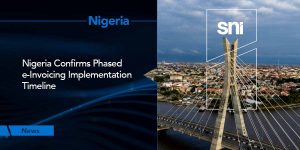The Portuguese government has been implementing an e-Invoicing system since 18 April 2020, pursuant to Directive 2014/55/EU of the European Parliament, managed by the Portuguese tax authority (Autoridade Tributária e Aduaneira). Public-sector entities must accept electronic invoices from vendors, and transmitting electronic invoices to public administrations in Portugal is mandatory, starting with large taxpayers and gradually extending to include smaller companies. Criteria are set by the government, and considers the number of employees, annual turnover, and total annual balance sheet. The scope of both e-Invoicing and SAF-T covers all resident and non-resident entities.
- Will e-Invoicing come into effect for all taxpayers at the same time or will there be a gradual implementation?
Implementation of the e-Invoicing system will gradually become mandatory. First, large companies became obliged to issue electronic invoices for transactions with public entities from 1 January 2021. The deadline for receiving and processing electronic invoices has been postponed to 30 December 2022 for micro, small, and medium-sized companies and for public entities as co-contracting entities.
eSPap classifies enterprises under obligation according to their number of employees, turnover, and balance sheet volume:
- Large enterprises: Employs over 250 people or has an annual turnover of more than 50 million euros, or a total annual balance sheet of more than 43 million euros.
- Medium-sized enterprises: Employs fewer than 250 people and has an annual turnover of 50 million euros or less, or a total annual balance sheet of 43 million euros or less.
- Small enterprises: Employs fewer than 50 people and has an annual turnover or total annual balance of 10 million euros or less.
- Microenterprises: Employs fewer than 10 people and has an annual turnover or annual balance sheet of 2 million euros or less.
- What is the electronic invoices format in Portugal?
Issued electronic invoices must be in XML format (including CIUS PT and UBL 2.1, or other European Norm-compatible formats upon agreement with the Public Authority). The government will consider PDF invoices as electronic invoices until December 30 2022.
- Is a digital signature on electronic invoices mandatory?
Yes, adding a digital signature is mandatory. Therefore, a QES (Qualified Electronic Signature) will have to be added on PDFs and all non-EDI invoices as of 1 December 2022.
- Is a QR code or ATCUD mandatory for electronic invoices in Portugal?
Adding QR codes on invoices became mandatory from January 1, 2022. QR codes are not necessary when invoices are transmitted via EDI.
The mandatory inclusion of ATCUD codes, which is a unique document identification number, was postponed until January 2023. Unlike the QR code, the ATCUD code must be included to all types of invoices and other fiscal documents. The ATCUD code consists of two parts: one of them assigned by the Portuguese tax authorities (such as a validation code of series number), and the other is generated by taxpayers’ certified invoicing software. For the duration of 2022, adding an ATCUD code to the e-Invoice is optional.
- Is it mandatory to archive electronic invoices?
Yes. Taxpayers must store electronic invoices for 10 years. Taxpayers are required to keep all their data (i.e. invoice, books) within an EU member state. Prior authorization is required to keep these data outside the EU.
To get more information about the process and our related solutions, please contact us at contact@snitechnogy.net.





